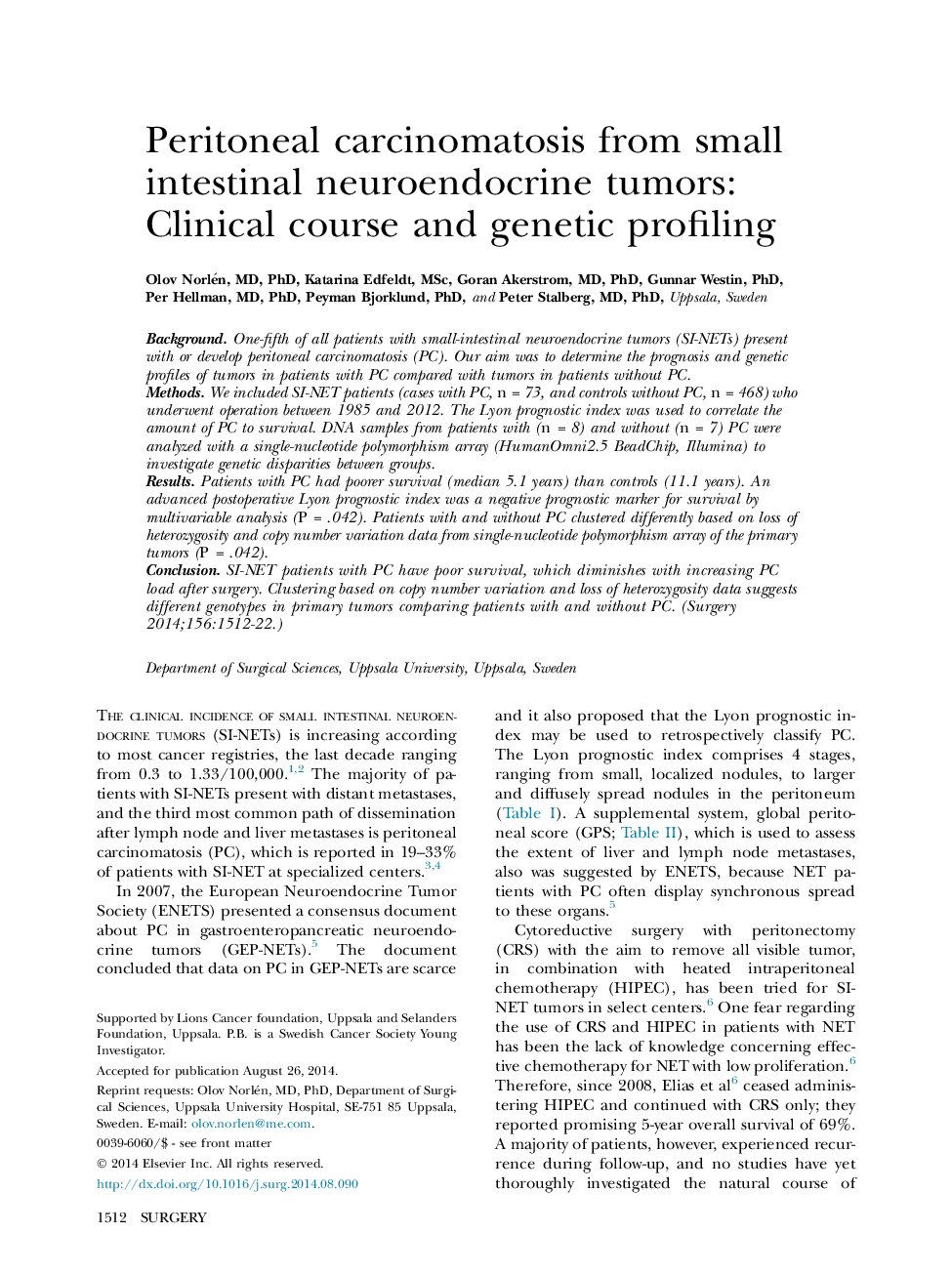| Article ID | Journal | Published Year | Pages | File Type |
|---|---|---|---|---|
| 4307452 | Surgery | 2014 | 11 Pages |
BackgroundOne-fifth of all patients with small-intestinal neuroendocrine tumors (SI-NETs) present with or develop peritoneal carcinomatosis (PC). Our aim was to determine the prognosis and genetic profiles of tumors in patients with PC compared with tumors in patients without PC.MethodsWe included SI-NET patients (cases with PC, n = 73, and controls without PC, n = 468) who underwent operation between 1985 and 2012. The Lyon prognostic index was used to correlate the amount of PC to survival. DNA samples from patients with (n = 8) and without (n = 7) PC were analyzed with a single-nucleotide polymorphism array (HumanOmni2.5 BeadChip, Illumina) to investigate genetic disparities between groups.ResultsPatients with PC had poorer survival (median 5.1 years) than controls (11.1 years). An advanced postoperative Lyon prognostic index was a negative prognostic marker for survival by multivariable analysis (P = .042). Patients with and without PC clustered differently based on loss of heterozygosity and copy number variation data from single-nucleotide polymorphism array of the primary tumors (P = .042).ConclusionSI-NET patients with PC have poor survival, which diminishes with increasing PC load after surgery. Clustering based on copy number variation and loss of heterozygosity data suggests different genotypes in primary tumors comparing patients with and without PC.
